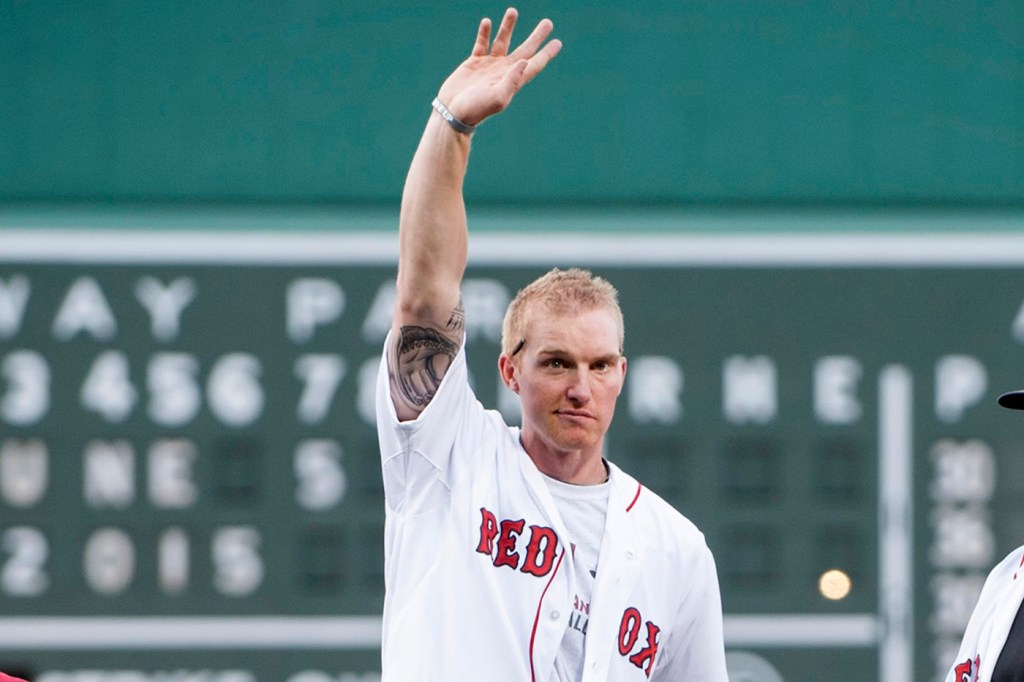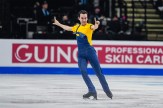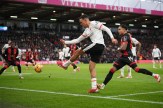Ryan Westmoreland, whose baseball dream was struck down by brain tumors, inspires as a student at Northeastern

Ryan Westmoreland, a phenom who grew up making baseball look easy, has spent much of his adult life teaching himself to do the simplest things—tying his shoes, unscrewing a bottle cap, walking a flight of stairs.
“I was an elite athlete,” says Westmoreland, who was the top prospect of the Boston Red Sox before undergoing 21 surgeries over the past 13 years. “And then I couldn’t do anything for myself.”
Now 32, an age when he might have been peaking as a star outfielder for the Red Sox, Westmoreland is managing his physical disabilities while building a family around his 2-year-old daughter, Adeline Grace, and taking classes at Northeastern in pursuit of his newfound dream to become a college baseball head coach.
Thirteen years ago, having suffered a medical emergency that left him momentarily blind, Westmoreland was rushed into surgery to remove a tumor of small blood vessels bleeding into his brain stem. He was 19.
Until that horrible day—he wears March 16, 2010, tattooed on his right arm—Westmoreland had been defined by a dream-come-true array of physical gifts. The Red Sox paid him a $2 million bonus to turn pro out of high school In Portsmouth, Rhode Island, and after one minor-league season he had been ranked among the top 15 prospects in pro baseball.
“Ryan Westmoreland was the most talented player I’ve ever drafted,” Jason McLeod, the former Red Sox scouting director who now works for the Arizona Diamondbacks, once said. “He would have been Boston’s lefthanded Mike Trout. He was a racehorse, 6-foot-3, strong and as fast as can be. Raw power. Great defender. He could have been Boston’s center fielder for 15 years.”
Westmoreland’s attempt at a comeback in the Dominican Republic ended when the cavernous malformation re-emerged, requiring a second brain stem surgery in 2012.
“What I’ve gone through has taught me to treat everyone with respect, because you never know where it’s all going to end,” Westmoreland says. “For me, it was very close to it all ending. And so I realized there’s so much more to be grateful for than just being an athlete, that all of these things that go into being a good person were very close to being taken away from me.”
Westmoreland is taking advantage of a Northeastern partnership with Major League Baseball that enables current and former professional baseball players to earn degrees. He’s majoring in liberal studies with a focus on leadership and business management—a program to help him reinvent himself in the sport he loves.
As an assistant baseball coach at the University of Massachusetts Dartmouth for the past three years while also leading a Rhode Island youth baseball program alongside his father, Westmoreland has realized that his presence on the field both complements and transcends the advice he offers to young players.
“I’m able to understand what people are going through,” he says. “Mental health is a big part of sports these days, and I’m very good about talking to players as people—and not just as their coach. I feel like that’s a very important thing to really listen to them and understand what they’re going through, why they’re going through it, and use what I’ve gone through to relate to them and to try to help them in any way that I can.”
Westmoreland wants players to understand his story and his desire to persevere. “I’m an open book,” he says before detailing his physical issues:
- He suffers from double vision. “My two eyes don’t work together because my left eye is kind of frozen into one spot,” he says. “So I see two perfect images of everything I’m looking at. I have corrective lenses, but I can’t even describe how frustrating it is—and how hard it was to relearn how to drive and stuff like that.”
- His right side is numb. “If you draw a straight line down my body, the right side of that line is completely numb. I can move it, it has strong muscle tone, but I don’t have any sensation. If you had me close my eyes and put a quarter in my right hand, I would have no idea that anything was in my hand. So that’s obviously really frustrating as well.”
- He has Bell’s palsy. “I sometimes mumble a little bit because the left side of my face is completely paralyzed. So I can’t smile on that side, I can’t flare my nostril or raise my eyebrow on that side. I have difficulty closing my eye, so I have medicated drops just to keep it hydrated.”
- He struggles with balance. “I can walk but it looks like I have a slight limp. And that’s the result of my double vision—it sounds funny, but I can’t tell where I’m stepping because I see two images of two different grounds at different heights. The other reason for my balance issue is [having] no sensation in my right foot. I can’t feel the ground that I’m walking on, so I have to look down and see that my foot is touching the ground. So that’s another very strange thing that I deal with.”
While he says he is “very comfortable” with his disabilities, Westmoreland acknowledges that he needed many painful years to adapt to his new reality and let go of the life he could no longer live.
“I tell my players there were two routes I could take,” he says. “One was just end it all, just say, ‘Why me? Why did this happen?’ And end it right then.
“Or take the other route and use what I’ve gone through to try to help others in any way that I can. And I’m grateful that I chose that route to impact others.”
He would not be doing so well without his circle of family and friends, he says.
“As you can imagine, it could have gotten really dark and negative in the position I was in, but those people combined to help make everything a little bit better,” Westmoreland says. “The Red Sox have been incredibly supportive. They still, to this day, check in on me to see how I’m doing.”
Coaching as an assistant at UMass Dartmouth provided him with a new dream.
“I absolutely fell in love with it,” he says of coaching. “Being able to not only teach them about baseball but also about character and being a good person off the field—I think that’s going to leave quite an impression if I can do that.”
Westmoreland’s return to baseball has been inspiring, says Bob Prince, the head coach at UMass Dartmouth.
“For a lot of people who would go through something like that—the level he was at in professional baseball, and what he had to look forward to, and then have that taken away—they wouldn’t be able to come back into that profession and give of themselves like he has,” Prince says. “Anytime I have a bad day, and then I think about what Ryan has gone through … He’s a very positive person and it’s just so important for our players to see that. We’re trying to teach them life lessons through baseball, and what better person to do that than Ryan?”
Prince says Westmoreland offers players a point of view that rises above his vast knowledge of hitting and playing the outfield.
“Every kid on our team knows his backstory,” Prince says. “For him to put in the time and effort that he does with each kid individually, to invest in them as people, it absolutely gets through to them.”
The first-of-its-kind partnership between Northeastern and MLB is designed to help players invest in new careers after baseball. The program enables players to work toward a bachelor’s or graduate degree at Northeastern, in-person or online. The university provides one-on-one access to academic and career coaching that is tailored to each student’s goals. Tuition and other costs can be covered by a continuing education program in baseball’s collective bargaining agreement.
More than 120 current or former professional ballplayers have enrolled in the Northeastern-MLB partnership, and at least 33 have graduated. The students include little-known minor-leaguers, as well as Jarrod Saltalamacchia, the catcher of the 2013 World Series champion Boston Red Sox, and Carlos Peña, the Northeastern Hall-of-Famer who became an All-Star during his 14-year Major League career.
Westmoreland, who has been taking four classes per semester from his Rhode Island home, expects to graduate later this year.
“I’m thankful to Northeastern for allowing me to go back and get my degree, because when I got drafted, that was always a goal,” says Westmoreland, who had been planning to attend Vanderbilt on a baseball scholarship before he signed with the Red Sox. “I’ve been taking the classes online because I want to be home with my daughter as much as possible. I’ve been able to watch her grow up and it’s been really special to be there for her and my wife.”
He met his wife, Libby Pinkham, on a dating app in 2015. Three years later, on a trip to California, Pinkham went for a walk with friends who led her along the beach. They turned into a clearing and found Westmoreland waiting for her in a tuxedo, surrounded by lanterns and rose petals. They were married in 2020.
They are expecting a second daughter in April.
So many athletes of his talent spend much of their lives looking back on the stars they used to be. That is a luxury that Westmoreland cannot afford. He found the strength, somehow, to approach his life with optimism rather than regret.
“What happened to me was no one’s fault,” he says. “I was only a teenager and it was awful, it was a nightmare. But it happened. And there’s nothing I can do to change that. And there’s nothing that I could have done to prevent it. It just happened and it was awfully bad luck.
“But there’s no point in looking back on that. That’s just a big waste of time. It’s no way to live, looking back and saying, ‘Why? Why me? Why did this happen to me?’ So I decided I was going to turn over a new chapter and focus on what I could do. And what I can do is help change other people’s lives and make an impact. And that’s kind of what I set out to do every day.”
Ian Thomsen is a Northeastern Global News reporter. Email him at i.thomsen@northeastern.edu. Follow him on Twitter @IanatNU.






